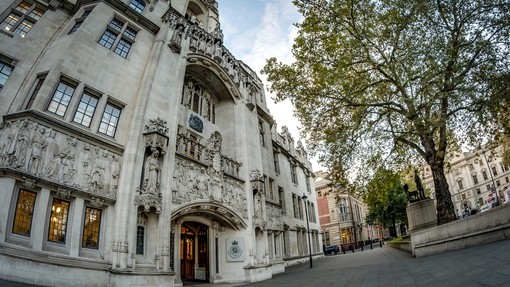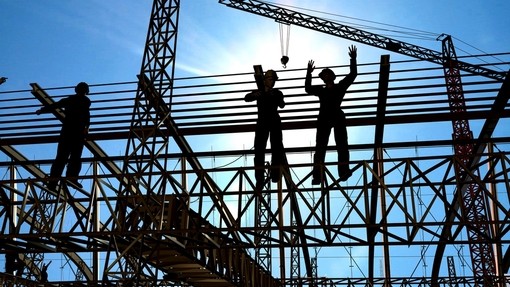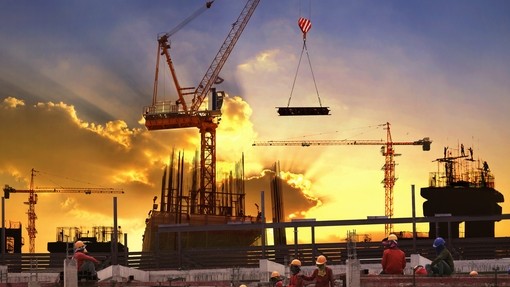Responsible Actors Scheme ('RAS')

Responsible Actors Scheme ('RAS')
The Building Safety Act is about both preventing future issues and remedying historic issues. In relation to the latter, an important aspect is the Responsible Actors Scheme which was launched on 24 July 2023. This currently affects Developers whose principal business is residential property development and who meet the certain conditions. Under the RAS ‘Eligible Developers’ are obliged to sign up to a ‘Developer Remediation Contract’ [with the government] which obliges them to remedy ‘unsafe buildings’ (residential or mixed use) that are 11 metres and above that have been developed or refurbished within 30 years prior to 5 April 2022. Failure to comply with these requirements can have huge consequences for developers.
This article summarises the various provisions with the BSA relating to RAS which are currently in force.
RAS
Under the RAS ‘Eligible Developers’ are obliged to sign up to a ‘Developer Remediation Contract’ which obliges them to remedy ‘unsafe buildings’ (residential or mixed use) that are 11 metres and above that have been developed or refurbished within 30 years prior to 5 April 2022. There are various important definitions within the BSA and its accompanying regulations that are relevant to these questions.
Relevant Building
The RAS applies to a ‘relevant building’. A relevant building is a residential building (containing at least one dwelling), which is at least 11 m high, was developed/refurbished during the ‘relevant period’ (namely between 5 April 1992 and 4 April 2022), and is in England. There are detailed provisions within the accompanying Regulations defining the characteristics of a relevant building.
Eligible Developers
Developers are eligible to join the RAS if they fulfil one or more of the following criteria, namely (1) their principal business is ‘residential property development’, (2) they meet the ‘profits condition’ and have developed/refurbished a relevant building, and have been assessed as being eligible for a ‘relevant government cladding remediation scheme’, or (3) have developed at least one relevant building that would qualify for remediation under the terms of the ‘Self Remediation Contract’ and they volunteered to sign the contract and join the RAS.
The ‘profits condition’ is met by any developer with an average annual operating profit in the 3 years from 2017 to 2019 of £10M. The test of whether a particular company developed a property is widely drafted to include group companies, even if they were not part of the group when the activity occurred.
A building is eligible for ‘relevant government remediation funds’ if before the date the Regulations came into force the building was assessed as being eligible for funding under either the Private Sector, the ACM Cladding and Remediation Fund, the Social Sector ACM Cladding and Remediation Fund or the Building Safety Fund or the Developer passes the profitability test.
The Secretary of State can invite Developers who appear eligible to join the RAS. Developers who have not been invited can seek directions from the Secretary of State. The RAS is initially focused on major house builders and other large Developers of multiple residential buildings that are known to have life critical fire safety defects.
RAS Membership Conditions
Eligible Developers must enter into a Self Remediation Contract with the government. The Self Remediation Contract requires the Developer (amongst other things) to identify relevant buildings that require works to remedy fire safety defects: remediate/mitigate life critical Fire safety defects: reimburse government schemes for taxpayer funded work to remediate/mitigate defects.
Life Critical Fire Safety Defects are defined in the Regulations, and include defects effecting external walls or cladding and internal parts such as compartmentalisation and fire stopping. Defects arising as a result of goods, materials or products being at the end of their life-cycle are excluded.
Enforcement
The RAS membership conditions include requirements that Eligible Developers must provide the government with information regarding their compliance with the RAS. Failure to comply can result in the government issuing a formal warning or revoking membership.
Prohibited Persons
Eligible Developers who do not become members of the RAS will be treated as ‘Prohibited Persons’. Prohibited Persons will be prevented from carrying out major developments in England and from gaining Building Control approval where such approval is required. Major developments will include Schemes providing 10 or more Residential Units, Residential Schemes on a Site at least 0.5 hectares in size, commercial developments creating at least 1,000 square metres of floor space, or development on a Site over 1 hectares.
There are obligations on Prohibited Persons to notify the relevant Local Authority of their prohibited status when applying for Planning Applications or if they acquire/transfer an interest in land which has the benefit of Planning Permission for major developments.
Reapplication to the RAS
Any party who has had its membership revoked may re-apply to the RAS, but they must describe how they proposes to rectify the reasons for their revocation.
RAS Extension
The government has stated that whilst initially the RAS will focus on major housebuilders and other large developers, it intends to extend the RAS. to cover other developers who have developed/refurbished qualifying defective residential buildings and who, in the government’s opinion should pay to fix them.
Wales Government Developers Pact
The above provisions extend only to England. The Welsh government has developed its own Developers Pact. It is reported that progress of the Developers Pact has been gradual.
For more information, please contact our Construction team.






